North Dakota Senior Assistance Programs, Benefits, and Grants (2026)
 Senior Population: 188,436
Senior Population: 188,436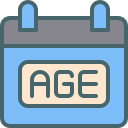 Median Age: 70.3
Median Age: 70.3 Veterans: 12.9%
Veterans: 12.9% Disability: 26.9%
Disability: 26.9%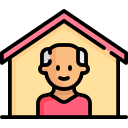 Renters: 25.4%
Renters: 25.4%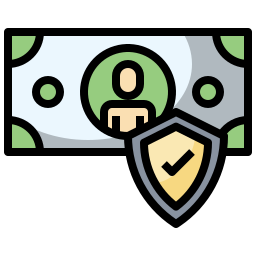 With Social Security Income: 74.0%
With Social Security Income: 74.0%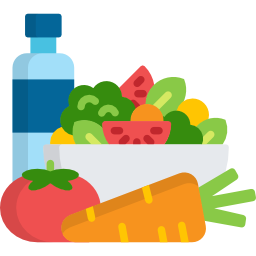 With Food Stamp/SNAP Benefits: 5.6%
With Food Stamp/SNAP Benefits: 5.6%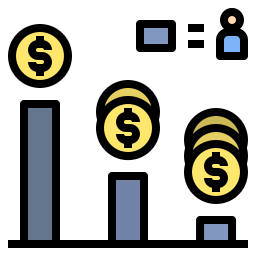 Below 100% of Poverty Level: 9.1%
Below 100% of Poverty Level: 9.1%Last updated:
— Your practical, plain‑language guide to housing, healthcare, food, utilities, transportation, and other help for seniors across North Dakota. All links go to official or well‑established sources.
Key takeaways
- Start with 211 for fast, local help. Call 211 or visit the statewide directory: North Dakota 211 resource search.
- For heating help, apply early each fall: Low-Income Home Energy Assistance Program (LIHEAP) — ND Health and Human Services.
- For in‑home care and long‑term care options, contact ND Health and Human Services — Aging Services.
- For rental help, apply through local housing authorities and HUD: HUD North Dakota rental help.
- For free Medicare counseling, contact the state’s State Health Insurance Counseling (SHIC).
- For food, check SNAP in North Dakota and Commodity Supplemental Food Program (CSFP).
If you need emergency help
- Call 911 for immediate danger or medical emergencies.
- Call 988 for the Suicide & Crisis Lifeline, available 24/7.
- Call 211 to connect with local shelters, food, utility help, and urgent support.
- Winter heating crisis: contact your utility right away to set up a payment plan and call LIHEAP — ND HHS to ask about emergency assistance.
- Homeless or at risk: contact ND Emergency Solutions Grant (ESG) or North Dakota Homeless Grant (NDHG) providers (phone: 701‑328‑5300).
- Adult abuse, neglect, exploitation: report to ND Adult Protective Services via your local Human Service Zone or call 855‑462‑5465 (ask for APS).
- Veterans in crisis: Call the Veterans Crisis Line at 988, then press 1, or text 838255.
How to use this guide
- Each section explains what a program is, who it helps, how to apply, and where to get help.
- We include realities and tips about waitlists, paperwork, and eligibility.
- At the end, you’ll find region‑specific resources, FAQs, and a consolidated resource list.
Quick program finder: Housing and utilities
| Program | What it helps with | Who it’s for | How to apply |
|---|---|---|---|
| Housing Choice Voucher (Section 8) | Monthly rent assistance | Low‑income renters; seniors get priority with disability/age needs | Apply through your local housing authority listed by HUD: HUD ND rental help |
| Public Housing | Below‑market rent in public housing | Low‑income individuals and seniors | Apply via local Public Housing Agencies (see HUD page) |
| ND Homeless Grant (NDHG) | Homelessness prevention, rapid re‑housing, limited supportive services | Homeless or at risk | Contact providers via NDHG or call 701‑328‑5300 |
| Emergency Solutions Grant (ESG) | Shelter, re‑housing, prevention | Low‑income households | See ESG ND |
| LIHEAP (Energy Assistance) | Heating bill help, weatherization referrals | Income‑eligible households | Apply through ND HHS Energy Assistance |
| Weatherization Assistance | Insulation, air‑sealing, furnace safety | Income‑eligible households | Start via ND Weatherization Assistance |
| Lifeline (phone/internet) | Discount on phone or internet service | Low‑income; SNAP/Medicaid participants often qualify | Apply via USAC Lifeline Program |
| Utility hardship funds | One‑time help | Varies by utility | Ask your utility; example: ND Energy Share (Dakota Valley Electric) |
Tip: Housing programs often have waitlists. Ask to be added to multiple lists and keep your contact info up to date with each agency.
Money and financial assistance
Property tax and renter relief
- Homestead Property Tax Credit (seniors/disabled homeowners): Qualifying seniors can get a property tax reduction. See eligibility and application with the ND Office of State Tax Commissioner — Homestead Credit.
- Renters Refund (Senior Citizen Renters Tax Refund): Qualifying senior renters may receive an income‑based refund. See the ND Tax — Renters Refund page for forms, income limits, and deadlines.
Reality check: These programs have firm annual deadlines and income/asset tests. If you miss a deadline, file early the next year or ask the Tax Department about late options.
Emergency cash-style help
- North Dakota Homeless Grant (NDHG) and Emergency Solutions Grant (ESG) can sometimes cover short‑term needs tied to housing stability (e.g., application fees, limited transportation). Start at NDHG and ESG or call 701‑328‑5300.
- Salvation Army (local service units): Limited funds for rent, utilities, transport, and basics. Find your area via The Salvation Army — Western North Dakota Service Extension or call 701‑204‑1616.
- Legal help to stop evictions or resolve debts: Legal Services of North Dakota provides free civil legal help for eligible seniors.
Important: TANF in North Dakota is primarily for families with minor children. Most seniors do not qualify unless they are caring for an eligible child. See ND HHS — TANF for rules.
Housing and rent assistance
Housing Choice Voucher (Section 8) and Public Housing
- What it is: Federal programs that lower monthly rent for eligible households. You pay a portion of income toward rent; the program pays the rest to the landlord or operates subsidized units.
- Who it helps: Low‑income renters, including seniors and people with disabilities.
- How to apply: Find housing authority contacts and open waitlists on the HUD North Dakota rental help page.
Reality check: Waitlists can be months to years. Put your name on multiple lists. Ask about preferences for seniors, disability, or homelessness.
National Housing Trust Fund (extremely low‑income housing)
- ND receives funding to develop housing for extremely low‑income households. Availability is limited and usually through specific properties and providers. Learn more from the ND Housing Finance Agency — National Housing Trust Fund.
Homelessness prevention and re‑housing
- ND Homeless Grant (NDHG) and Emergency Solutions Grant (ESG): Support eviction prevention, deposit/first‑month rent, and rapid re‑housing for those who qualify. Details and provider lists: NDHG and ESG.
Home repair and accessibility
| Program | What it does | Who qualifies | Where to apply |
|---|---|---|---|
| USDA Single Family Housing Repair Loans & Grants (Section 504) | Grants (for age 62+) to fix health/safety hazards; loans for repairs | Very low‑income homeowners; grants for seniors 62+ | USDA Rural Development — Single Family Housing Repair |
| Weatherization Assistance | Insulation, air sealing, heating system tune‑ups | Income‑eligible homeowners and renters | ND Weatherization Assistance |
| Habitat for Humanity (local affiliates) | Critical repairs, accessibility modifications (varies) | Income‑qualified households | Find ND affiliates at Habitat affiliate finder |
Tip: If you’re a renter, repairs must involve your landlord. For homeowners, gather proof of ownership, income, and photos/estimates of needed repairs.
Utilities: heat, power, water, and communications
LIHEAP — heating cost help
- What it is: Helps pay a portion of heating costs; may include emergency furnace repair in some situations. Administered by ND Health and Human Services.
- How to apply: Visit ND HHS — Energy Assistance (LIHEAP). You can apply online or through your local Human Service Zone.
- Tip: Apply early in the heating season. If your heat is off, call your utility and your Human Service Zone the same day.
Weatherization Assistance
- What it is: Free home energy upgrades that lower bills long‑term (insulation, air sealing, energy safety checks).
- How to start: See ND Weatherization Assistance. Often linked with LIHEAP.
Water bill help
- LIHWAP was a temporary federal program run during the pandemic. Some states folded parts into other services. Check the federal status at ACF — LIHWAP, and ask your city water utility and local 211 about any current local water assistance.
Phone and internet discounts
- Lifeline: Ongoing federal discount on phone or internet. Learn more and apply at USAC Lifeline Program.
- Affordable Connectivity Program (ACP): Funding has lapsed. Check current status at the FCC ACP page and ask your provider about any replacement low‑cost plans.
Utility hardship funds and protections
- Many co‑ops and utilities have hardship funds. One example is ND Energy Share (Dakota Valley Electric).
- For utility complaints or assistance understanding rules, contact the North Dakota Public Service Commission — Consumer Affairs.
Healthcare and in‑home support
| Program | What it covers | Who it’s for | Where to learn more |
|---|---|---|---|
| North Dakota Medicaid | Hospital, doctor visits, prescriptions, long‑term care, and more | Low‑income; includes coverage for age 65+ | ND Medicaid — Apply and eligibility |
| Medicaid Waiver for Home & Community‑Based Services (HCBS) | In‑home services to avoid nursing home placement | Medicaid‑eligible seniors meeting level‑of‑care | ND HHS — HCBS Waiver |
| SPED & Ex‑SPED (state‑funded) | Personal care, homemaker, respite, adult foster care | Seniors with functional needs; Ex‑SPED targets those at basic care level | ND HHS — Adults & Aging programs |
| PACE (Program of All‑Inclusive Care for the Elderly) | Coordinated medical and in‑home support for 55+ to remain at home | 55+ living in a PACE service area, meeting clinical criteria | ND Medicaid — PACE |
| Older Americans Act Services | Meals, transportation, caregiver support, legal assistance, more | Age 60+ (no fees; contributions encouraged) | ND HHS — Aging Services |
Tips and realities:
- Medicaid and waiver services require paperwork and medical assessments. Ask your Human Service Zone for help completing forms.
- SPED/Ex‑SPED can help if you’re over income for Medicaid but need supports. Slots and funding can be limited.
- For nursing home residents’ rights, call the ND Long‑Term Care Ombudsman.
Medicare help, fraud prevention, and choosing plans
- Free, unbiased counseling: State Health Insurance Counseling (SHIC) — ND Insurance Department.
- Fight fraud and billing errors: Senior Medicare Patrol (SMP) — North Dakota.
Dental care
- Medicaid covers some dental services for eligible adults; check your plan specifics: ND Medicaid.
- Donated dental care for eligible seniors with disabilities or fragile health: Dental Lifeline Network — North Dakota Donated Dental Services.
- Dental clinics with reduced fees: contact your local public health unit or 211 for current clinics and income‑based providers.
Food and nutrition
| Program | What you get | Who qualifies | How to apply |
|---|---|---|---|
| SNAP (Supplemental Nutrition Assistance Program) | Monthly benefits on an EBT card to buy groceries | Income‑eligible; seniors may have higher deductions for medical expenses | Apply at ND HHS — SNAP |
| Commodity Supplemental Food Program (CSFP) | Monthly box of shelf‑stable food for 60+ | Income‑eligible seniors | See ND DPI — CSFP |
| Older Americans Act Meals | Home‑delivered (“Meals on Wheels”) and community meals | Age 60+ | Contact your local provider via ND Aging Services |
| The Emergency Food Assistance Program (TEFAP) | Free USDA foods via local pantries | Low‑income households | Ask your local pantry or see USDA TEFAP overview |
Also check the statewide food bank for mobile pantries and local partners: Great Plains Food Bank — Find Food.
Tip: If your out‑of‑pocket medical costs are high, tell SNAP — seniors can often deduct verified medical expenses to increase their monthly benefit.
Transportation and mobility
- Bis‑Man Transit (Bismarck‑Mandan): Door‑to‑door rides by reservation, including for seniors. See schedules and eligibility at Bis‑Man Transit.
- Souris Basin Transportation (Minot region and surrounding counties): Local and regional trips. See Souris Basin Transit.
- NDAD (North Dakota Association for the Disabled): Transportation support for people with disabilities (including seniors), plus other assistance. See NDAD transportation.
- Find more rural and regional services (including West River Transit, Cities Area Transit, and others) at NDDOT — Public Transit Providers Directory and via 211.
Reality check: Many rural routes require booking at least a day in advance and may be curb‑to‑curb, shared‑ride service. Ask about door‑to‑door or winter weather policies.
Caregivers and respite
- Family Caregiver Support Program: Counseling, training, and short‑term respite for those caring for adults 60+ or someone with dementia. Contact ND HHS — Caregiver Support.
- Lifespan Respite Care: Helps connect families with respite and, when available, limited financial support to access respite. See ND Lifespan Respite.
Elder rights, protection, and advocacy
- Long‑Term Care Ombudsman: Advocates for residents in nursing homes and assisted living. File complaints or ask questions: ND Ombudsman Program.
- Adult Protective Services: Report suspected abuse, neglect, or financial exploitation at ND APS or by calling 855‑462‑5465.
- Consumer and scam alerts: ND Attorney General — Consumer Protection.
Inclusive resources
Veterans and military-connected seniors
- ND Department of Veterans Affairs: Help with VA benefits, Aid & Attendance, pensions, and healthcare. Find your County or Tribal VSO: ND Veterans Affairs — Find Benefits and VSOs.
- VA Fargo Health Care System: Primary care, specialty care, and community care coordination. See VA Fargo Health Care.
- Aid and Attendance (VA): Extra monthly payment for veterans/surviving spouses who need help with daily activities. Learn more at VA Aid and Attendance and Housebound benefits.
Tip: Bring discharge papers (DD‑214) to your VSO appointment. If you don’t have them, your VSO can help request records.
LGBTQ+ seniors
- Free, confidential support: SAGE National LGBT Elder Hotline at 877‑360‑5428.
- Medicare and Medicaid provide services regardless of sexual orientation or gender identity; report discrimination to HHS Office for Civil Rights.
- For local community support, ask 211 about senior‑friendly LGBTQ+ groups and events in your county.
Seniors with disabilities
- Independent Living Centers provide equipment loans, home modification guidance, peer support, and advocacy:
- NDAD offers financial aid and transportation for disability‑related needs: NDAD Services.
American Indian/Alaska Native seniors in North Dakota
- Title VI Native American Aging Programs: Congregate and home‑delivered meals, caregiver support, and more through tribal elder programs. Use the ACL directory: ACL — Title VI Programs.
- Indian Health Service (Great Plains Area): Healthcare eligibility and services: IHS Great Plains Area.
- ND Indian Affairs Commission (contacts and links to tribes): ND Indian Affairs Commission.
- BIA General Assistance (for eligible tribal members): BIA Financial Assistance & Social Services.
Tip: Many tribes administer LIHEAP, meals, and transportation directly. Contact your tribal social services or elder program for application details.
Rural seniors and limited access
- Rural transit and volunteer driver programs can bridge long distances; check the NDDOT Transit Directory and call 211.
- Telehealth: Medicaid and Medicare cover many telehealth visits. Ask your clinic about connectivity options and phone‑only visits when available.
- Mobile food pantries: Check routes and dates at Great Plains Food Bank — Find Food.
How to apply: documents checklist
- Photo ID and proof of North Dakota residency
- Social Security number (or documentation if pending)
- Proof of income (Social Security award letter, pension statement, pay stubs, bank statements)
- Recent utility bills (for LIHEAP/Weatherization)
- Lease or mortgage statement (for housing)
- Medical expense records (for SNAP and some Medicaid programs)
- VA or military papers (for veterans’ programs)
- Tribal enrollment documentation if applicable (for tribal resources)
Tip: Keep copies of everything you submit. If you don’t have a printer, your local library or senior center can often help.
Regional resources (selected)
- Fargo–Moorhead and Eastern ND:
- Meals, transportation, senior centers: Valley Senior Services
- Bismarck–Mandan:
- Transit: Bis‑Man Transit
- Senior programs and services: contact Burleigh or Morton Human Service Zones via ND HHS — Find Help
- Grand Forks:
- Meals, classes, programs: Grand Forks Senior Center
- Minot and North Central ND:
- Meals, wellness, services: Minot Commission on Aging
- Transportation: Souris Basin Transit
- Williston and Williams County:
- Programs and activities: Williston Council for the Aging
Can’t find your area? Call 211 or use ND HHS — Aging Services to get referred to your nearest provider.
Frequently asked questions (FAQs)
- How do I apply for LIHEAP heating assistance in North Dakota?
Apply through ND HHS — Energy Assistance. You can apply online or through your Human Service Zone. If heat is shut off or you have a disconnect notice, tell them it’s an emergency. - I need in‑home help but want to avoid a nursing home. What are my options?
Ask about the Medicaid HCBS Waiver, SPED/Ex‑SPED, and PACE. Start with ND HHS — Adults & Aging or call your Human Service Zone. - Does North Dakota have a property tax break for seniors?
Yes. See the Homestead Property Tax Credit for homeowners and the Renters Refund for eligible renters. - Where can I get help choosing a Medicare plan?
Contact State Health Insurance Counseling (SHIC). They give free, unbiased advice. - Is TANF available to seniors?
TANF is for families with minor children. Seniors usually won’t qualify unless they’re caring for an eligible child. See ND HHS — TANF. - How can I find affordable senior housing or apply for Section 8?
Check the HUD North Dakota rental help page for housing authorities and application instructions. Expect waitlists. - Where can I get free or low‑cost dental care?
If you have Medicaid, check covered services. Also see Dental Lifeline Network — North Dakota. Ask your public health unit or 211 for current dental clinics and sliding‑fee providers. - I’m a veteran. Who can help me file for VA benefits?
Contact your County or Tribal Veterans Service Officer via the ND Department of Veterans Affairs. They can help with pensions, Aid & Attendance, and healthcare enrollment. - How do I report suspected elder abuse or neglect?
Contact Adult Protective Services via your Human Service Zone or call 855‑462‑5465. If danger is immediate, call 911. - Is there help with transportation to medical appointments?
Yes. Options vary by county. Start with NDDOT transit providers, 211, Bis‑Man Transit (Bismarck‑Mandan), and Souris Basin Transit (Minot area). Some health plans also provide transportation.
Tables: At‑a‑glance reference
Core health coverage options for ND seniors
| Option | Highlights | Cost considerations | Where to get help |
|---|---|---|---|
| Original Medicare (A & B) + Part D | Broad access to providers | Premiums, deductibles, and coinsurance apply | Medicare.gov and SHIC counseling |
| Medicare Advantage (Part C) | One‑card plans; may include extras | Network rules and prior authorizations common | Medicare Plan Finder and SHIC |
| Medicaid (full) | Comprehensive coverage; long‑term care | Income/asset limits | ND Medicaid |
| Medicaid HCBS Waiver | In‑home supports to avoid nursing home | Slots and assessments required | ND HCBS |
| PACE | Wraparound care to stay at home | Must live in PACE service area; enrollment assessment | ND Medicaid — PACE |
Housing and utility help overview
| Program | Type | Contact |
|---|---|---|
| Section 8 HCV / Public Housing | Rent assistance | HUD ND rental help |
| ND Homeless Grant / ESG | Homelessness prevention & re‑housing | NDHG / ESG |
| LIHEAP | Heating bill help | ND HHS — LIHEAP |
| Weatherization | Energy efficiency repairs | ND Weatherization |
| Section 504 | Home repair grants/loans | USDA Section 504 |
Food programs at a glance
| Program | Benefit | Apply/Info |
|---|---|---|
| SNAP | Monthly grocery benefits via EBT card | ND SNAP |
| CSFP (60+) | Monthly food package | ND CSFP |
| OAA Meals | Home‑delivered and congregate meals | ND Aging Services |
| TEFAP | Free USDA foods via pantries | Check local pantry or USDA TEFAP |
Application tips and reality checks
- Start early and follow up. Waitlists are common for housing and in‑home care.
- Keep a folder with IDs, Social Security cards, income letters, leases, and bills.
- If you’re denied, ask for the notice in writing and appeal by the deadline. Many denials are fixed with more documentation.
- Use unbiased counseling: SHIC for Medicare, Legal Services for housing and benefits, Ombudsman for long‑term care issues.
Resources (official links)
- ND Health and Human Services — Aging & Adult Services: Programs and services overview
- ND Medicaid: Eligibility and enrollment
- ND LIHEAP: Energy Assistance
- Weatherization Assistance: ND Department of Commerce — Community Services
- SNAP in North Dakota: Apply and info
- CSFP: ND Department of Public Instruction — CSFP
- HUD North Dakota: Rental help and housing authorities
- ND Housing Finance Agency — NHTF: Program info
- ND Homeless Grant / ESG: NDHG / ESG
- SHIC (Medicare counseling): ND Insurance Department
- Senior Medicare Patrol (SMP): ND SMP
- Long‑Term Care Ombudsman: Program page
- Legal Services of North Dakota: Apply for help
- Great Plains Food Bank: Find Food
- ND Department of Veterans Affairs: Find a VSO
- NDDOT Transit Providers: Directory
- 211 North Dakota: Call 211 or search online
Disclaimer
Programs, income limits, and contact details can change. Always confirm information and eligibility with the official agency or organization before applying. This guide is for general information and is not legal or financial advice.
About this guide
by the GrantsForSeniors.org Editorial Team
The GrantsForSeniors.org editorial team has been building benefit and assistance resources for seniors nationwide since 2020. We research programs across all 50 states by reviewing government websites, checking agency updates, and gathering information from available sources.
Our Commitment to You:
- Experience & Expertise: The information in this guide is compiled and reviewed by a team with experience in senior services and financial aid programs. We are committed to sharing our knowledge to help you find the support you need.
- Authority & Trust: We rely on verified sources, including government agencies, non-profit organizations, and official program websites, to ensure the accuracy of our content. Our goal is to be a trusted authority you can rely on for credible information.
- Clarity & Accessibility: We understand that seeking financial assistance can be challenging. This guide is designed to be clear and easy to understand, breaking down complex topics into actionable steps.
While we work hard to provide the most accurate information available, please note that program details and eligibility requirements can change. We recommend always checking with the official program source or agency website for the most current information, as we are not official agencies but rather compile available information.
- Last Updated: January 2026
- Sources Verified: January 2026
- Next Review: May 2026
If you find outdated information, discover new resources, or have questions, please contact us at info@grantsforseniors.org. We’re here to help seniors find resources that make a real difference.

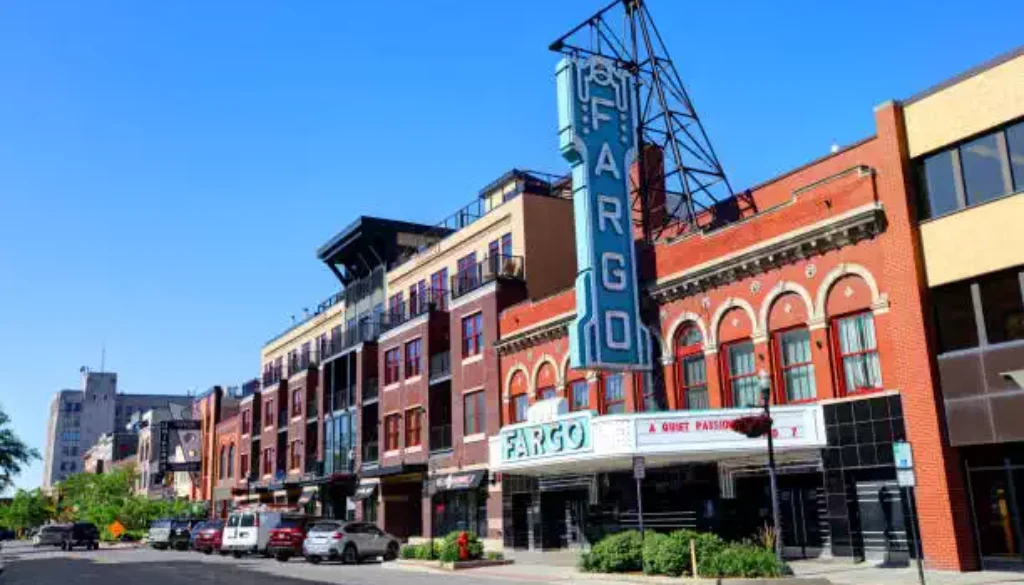
 Data is taken from 2024 (latest): ACS 1-Year Estimates Subject Tables.
Data is taken from 2024 (latest): ACS 1-Year Estimates Subject Tables.

